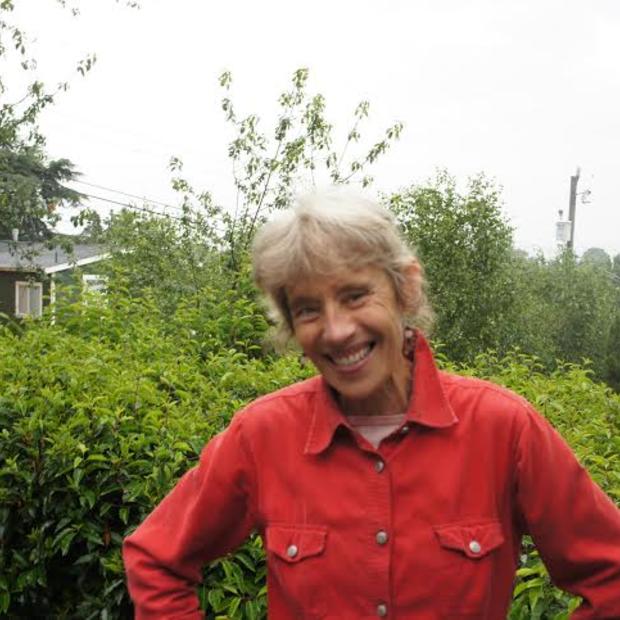Look at the politics of climate change, says Alex Lenferna, a fossil fuel divestment leader and Fulbright Scholar at the University of Washington, and what you see are “significant campaign contributions, political corruption, and a block on policies in the U.S.”
For three years Lenferna and other students with Divest UW have been meeting with University of Washington officials, trying to win the school's support for policies that the activists believe will move the region and the nation forward. Six initiatives emerged from meetings with the university's Treasury office: one on shareholder engagement, another on moving the university's investments to clean energy, and still others on using environmental, social and corporate governance to engage with students.
Now it's time for the UW to “walk the talk” by ending all investments in coal, says Divest UW co-founder Kyle Murphy. “How can we build the most efficient buildings, create efficient transportation systems, have a cutting edge clean energy center,” he asks, “and undermine all that work by dumping millions of dollars in fossil fuel investments? It makes no sense to me.” The university was awarded a Gold STARS rating (Sustainability Tracking, Assessment and Rating System) from the Association for the Advancement of Sustainability in Higher Education, (AAHSE) in 2013.
On Thursday, the Board of Regents will decide whether to divest from coal. The University had approximately $2.3 million invested in coal as of June 2014, according to an email divest co-founder Lenferna received from the Treasurer’s office, representing .08 percent of its Consolidated Endowment Fund. A request to the office to clarify the full extent of coal and other fossil fuel holdings was acknowledged but was unanswered as of Tuesday morning.
Lenferna says divestment in coal is “an important first step.” He adds, “I would prefer a broader commitment but there's a tension that exists. The Board of Regents can be pretty conservative.”
The burning of coal, natural gas and oil for electricity and heat is the largest single source of global greenhouse gas emissions. A recent study published in Nature found that 80 percent of all coal reserves need to stay underground in order for there to be a 50 percent chance of achieving agreed targets to keep global warming at less than 2 degrees Celsius. Leaving reserves in the ground could result in billions in losses for for the coal industry, according to an analysis that Divest UW leaders cite in their arguments.
Another major West Coast university, Stanford, decided in May of last year to liquidate holdings in coal-producing companies. Stanford trustees said there were alternate energy sources that emit less greenhouse gases. Should the UW follow Stanford's lead, it would become one of the largest academic institutions in terms of enrollment to divest from coal, says Lenferna.
A 2014 study done at Oxford University found that divestment movements can be effective. It said the fossil fuel campaign hopes to foster stronger climate laws and pressure fossil fuel companies into major changes to energy supplies and technologies that drastically reduce carbon emissions.
Taking time from graduate studies that focus on the ethics of climate change and climate justice, Lenferna explains his position while he sips from an iced coffee on an unusually warm spring day. Divestment has shifted social and political movements in the past, he says, referring particularly to the campaign to use economic measures to undo apartheid, in South Africa, where he grew up. “It can be a powerful way to start moving the climate discourse forward.”
Amelia Timbers, energy program adviser with As You Sow Investments, a Bay Area non-profit that promotes environment and social corporate responsibility through shareholder advocacy, cites the Oxford report in her own arguments for institutional divestment. There's also a risk-based economic argument for divesting from the fossil fuel sector, says Timbers. The price of coal continues to free fall and oil and gas are undergoing fundamental and dramatic change. “The business model no longer makes sense,” she says. As more institutions and people demand alternatives, and governments regulate carbon output because of climate change, the “carbon risk” becomes too great to ignore.
The UW administration, including the office of Interim President Ana Mari Cauce and the Board of Regents, referred all requests for comment to media relations. Media relations officials returned Crosscut’s call but said they could not answer questions about the issue or the pending vote before the Regents' meeting on Thursday. Calls to individual regents students believe are in their camp were not returned.
Among hundreds of universities where students have launched divestment campaigns, about two dozen have been successful, most recently at Syracuse. Many others have said “no” to divestment, including Yale and Harvard. Christine Wood, a Vassar College trusteewith 30 years experience in the investment management field as well as with divestment campaigns relating to South Africa, tobacco and weapons of mass destruction, told UniversityBusiness.com, “The problem I have found in every instance, without exception, is that trying to use an investment portfolio to accomplish social or political causes comes up short in every way you can imagine.” Woods' arguments are threefold: Divestment doesn't hurt companies, it leaves institutions voiceless "because stockholders are the only ones who can truly engage the company"; and it's “an easy way out.”
Divest UW students couldn't disagree more. What the Regents think remains to be seen.


